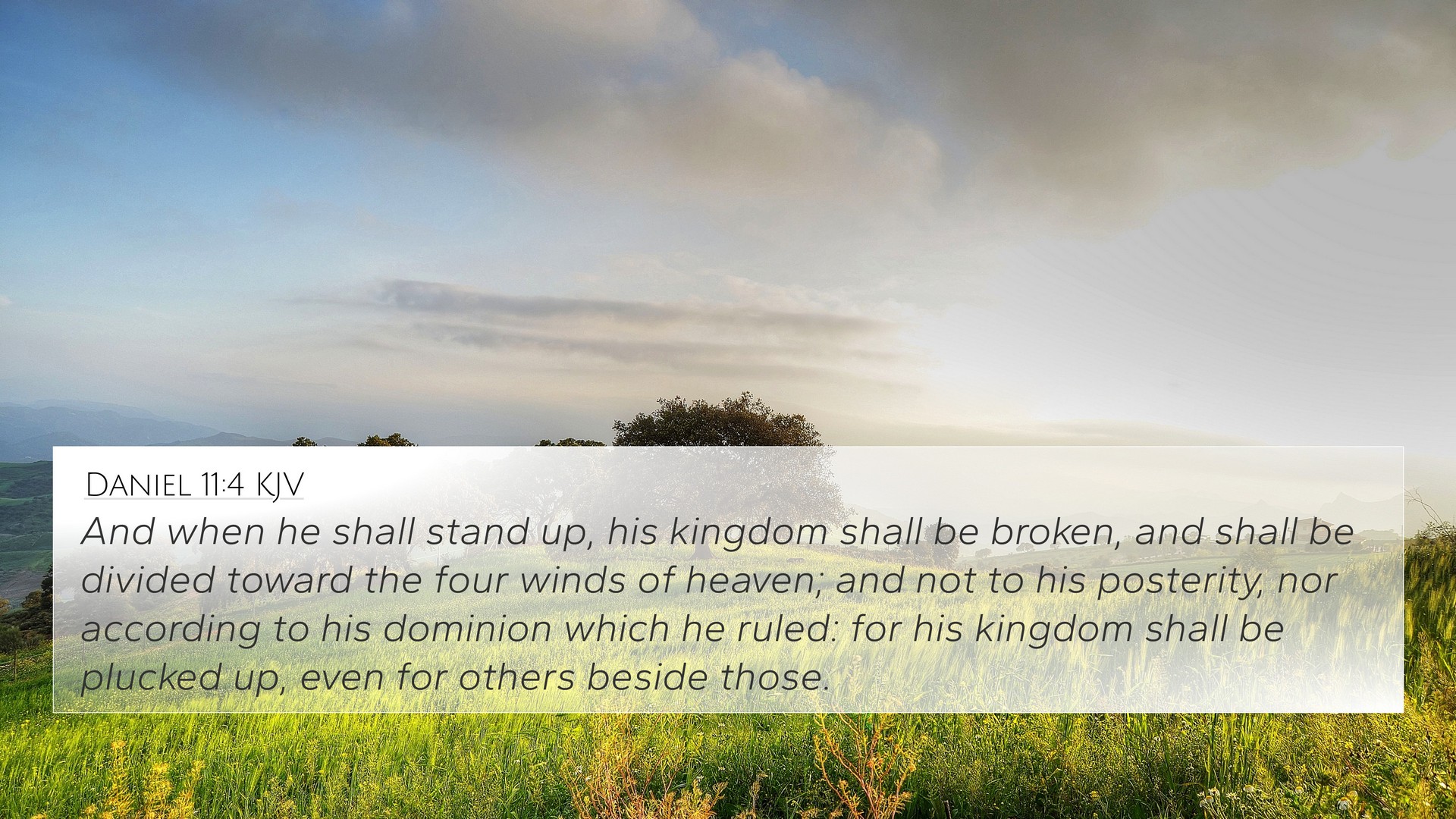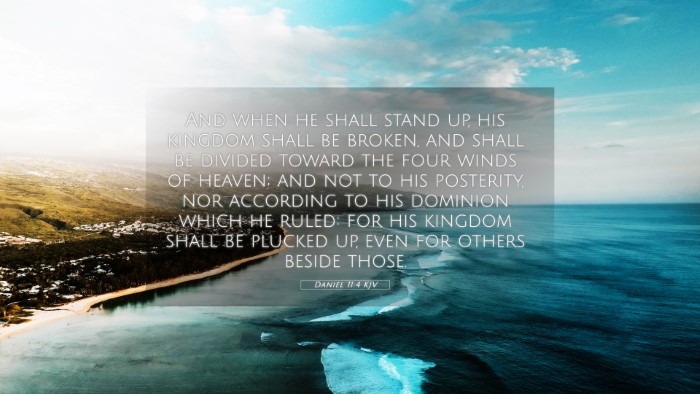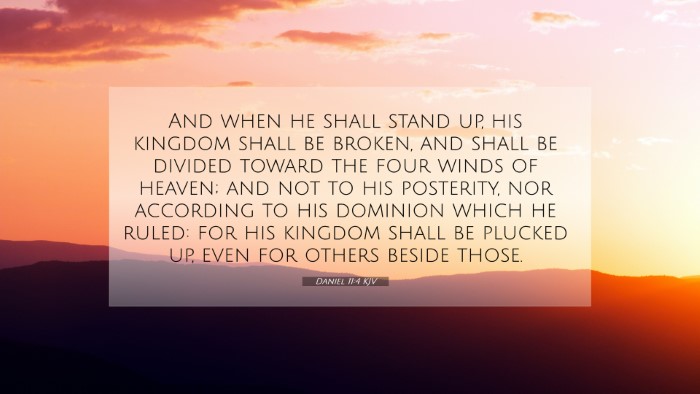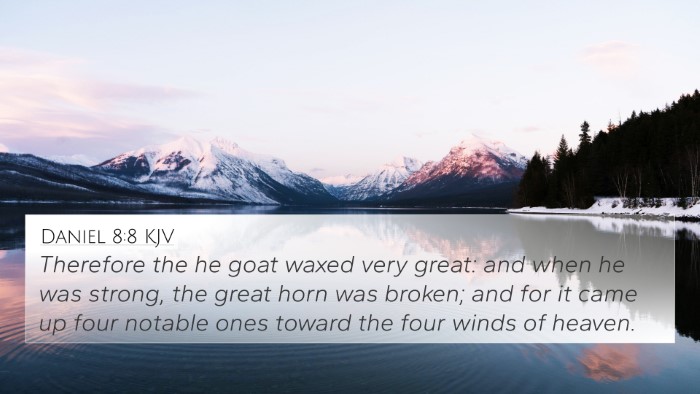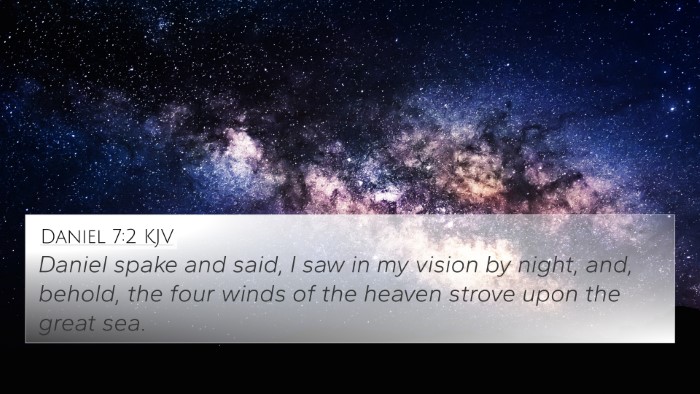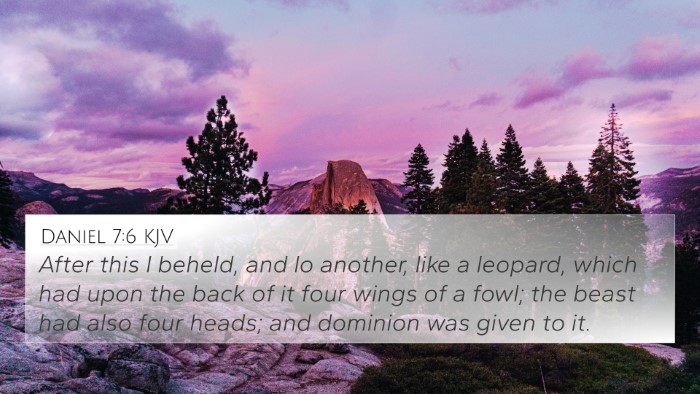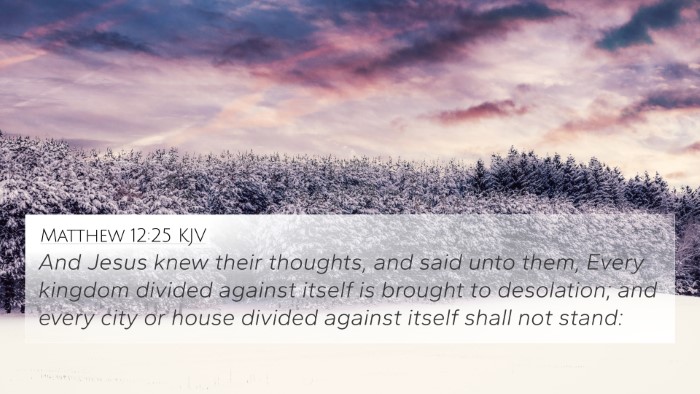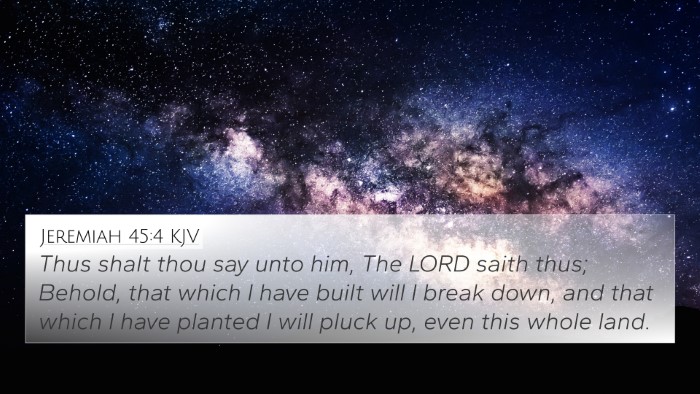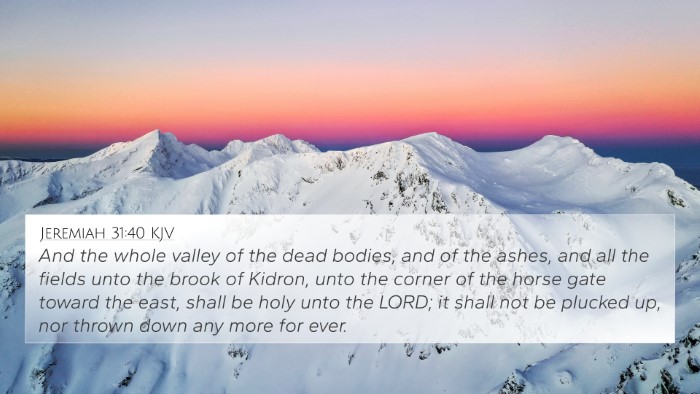Understanding Daniel 11:4
Bible Verse: Daniel 11:4 - "And when he shall stand up, his kingdom shall be broken, and shall be divided toward the four winds of heaven; and not to his posterity, nor according to his dominion which he ruled: for his kingdom shall be pluckt up, even for others beside those." (KJV)
Overview of Commentary Insights
This verse is situated within a prophetic context in the Book of Daniel, which addresses the rise and fall of empires. Scholars such as Matthew Henry, Albert Barnes, and Adam Clarke offer rich insights into the meaning and implications of this scripture.
Context and Historical Significance
Daniel 11 outlines a detailed prophecy about future rulers and kingdoms, particularly focusing on the conflicts between the kings of the North and the South, which symbolizes larger geopolitical struggles that encompass different nations and empires. In this verse, the reference to the kingdom being "broken" signifies the eventual failure of power and prominence.
Matthew Henry's Commentary
Matthew Henry highlights the transient nature of power and the certainty of God's sovereignty over earthly kingdoms. He posits that the verse portrays a moment of political upheaval, indicating how quickly leadership can change and how fleeting human endeavors can be.
Albert Barnes' Commentary
Albert Barnes provides an interpretation focused on the division of empires post the ruler's death. He notes that the four winds symbolize the dispersion and fragmentation of power, signifying that no lasting legacy would emerge from this ruler's reign.
Adam Clarke's Commentary
Adam Clarke emphasizes the prophetic nature of the text, asserting that this is a clear indication of future developments. He connects this division to the historical impacts seen after the fall of empires, akin to the Hellenistic period following Alexander the Great.
Key Themes and Connections
The verse reflects prominent themes of:
- Transience of Power: Human authority is temporary.
- Divine Sovereignty: God orchestrates the rise and fall of kingdoms.
- Prophetic Fulfillment: The prophecy foreshadows historical events.
Bible Cross-References
This verse relates to several other Bible passages, illustrating the interconnectedness of Scripture:
- Daniel 2:44: "And in the days of these kings shall the God of heaven set up a kingdom, which shall never be destroyed." - This verse points to God's eternal kingdom amidst human failures.
- Isaiah 14:12-15: This passage reflects on the fall of a powerful figure, paralleling the themes in Daniel 11:4.
- Psalm 75:6-7: "For promotion cometh neither from the east, nor from the west, nor from the south. But God is the judge: he putteth down one, and setteth up another." - Affirming God's role in establishing leadership.
- Revelation 17:10: Discusses the rise and fall of kings, relating it to the prophetic insights in Daniel.
- Jeremiah 51:24: The Babylonian empire's eventual fall also reflects the transient nature of earthly rule.
- Ecclesiastes 1:4: "One generation passeth away, and another generation cometh: but the earth abideth forever." - Echoes the fleeting nature of human authority.
- Luke 1:53: "He hath filled the hungry with good things; and the rich he hath sent empty away." - Highlights the reversal of fortunes applicable to worldly powers.
Exploring Scriptural Cross-Referencing
Utilizing tools for Bible cross-referencing, one can assist in understanding the extensive relationships between various biblical texts.
Effective cross-reference Bible study methodologies include:
- Identifying parallels in prophetic books.
- Examining thematic connections across verses.
- Engaging in Bible verse analysis for sermon preparation.
- Employing a Bible concordance to locate related scriptures.
Conclusion
Daniel 11:4 serves as a poignant reminder of the challenges and shifts inherent in human kingdoms, emphasizing God's ultimate control over history. Cross-referencing this verse with others enhances our understanding of its themes, providing a broader spiritual context.
By engaging with Bible verse cross-references, one can cultivate deeper insights into specific scriptures and their implications, enriching personal study and communal discussions.
